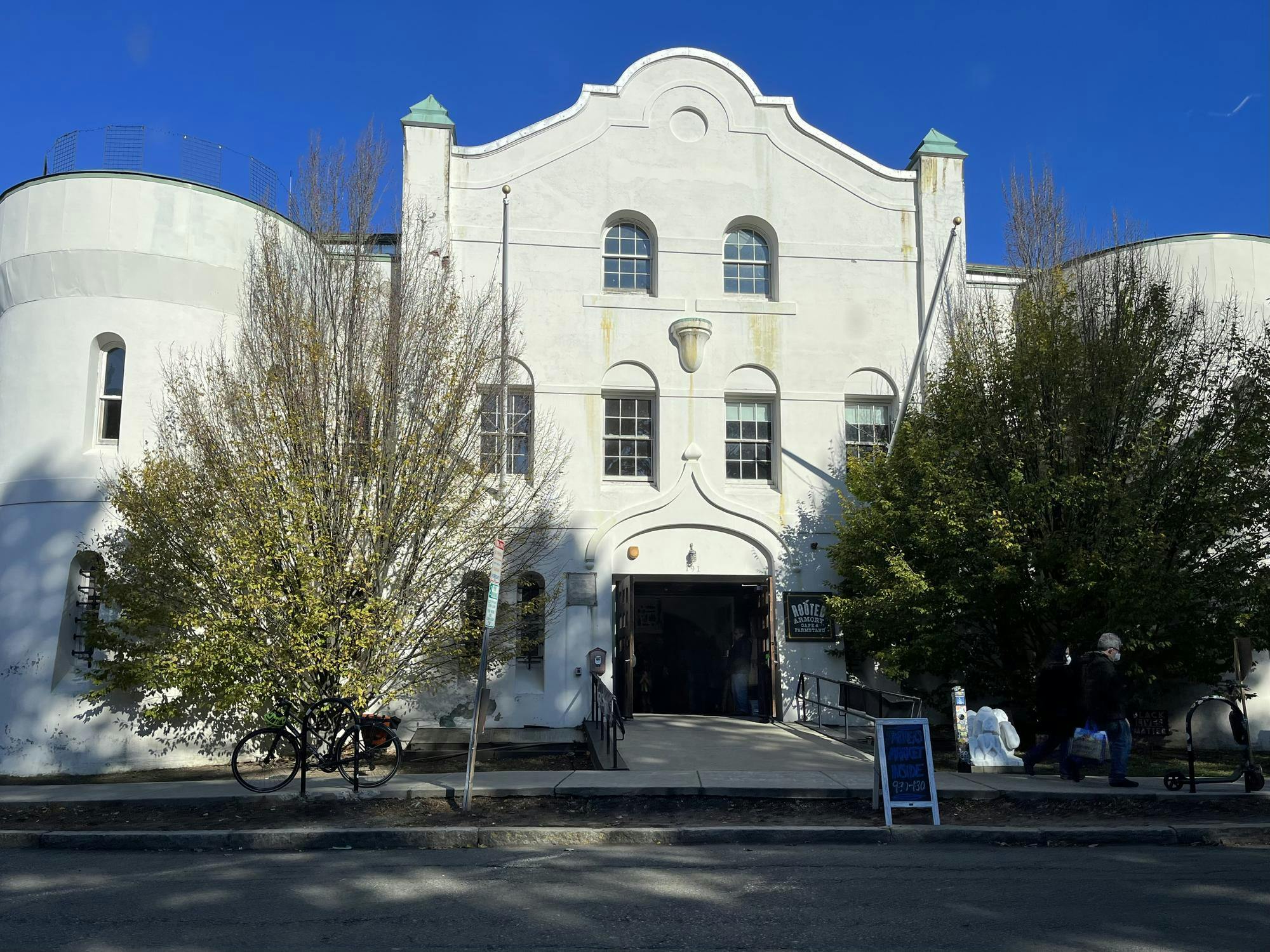The Somerville City Council met on Sept. 28 to discuss a variety of issues including plans for the Armory building as well as a prison moratorium and elder parole policies.
The Center for Arts at the Armory is housed in a historic building in Somerville that serves as a venue for art, music, cultural and community events.
Stephanie Scherpf, co-director and CEO at the Center for Arts at the Armory, shared some background information on the state of the building.
“Since the building was renovated and reopened in 2008, [the Center for] Arts at the Armory was always the building manager until we had to step down from that role during the pandemic due to lack of resources and staff present in the building,” Scherpf said.
Since then, the city has taken the building through eminent domain and is working on establishing an Armory Master Plan to organize its use.
Scherpf expressed her concern with how the council is managing the building’s plans.
“After two-plus years, we just don’t see that the city has the capacity to deliver the Armory Master Plan or secure the productive use of the building without us,” Scherpf said. “I’m also representing the interests of the community which we serve, which includes artists, cultural workers, community members … They’re all concerned that they’re going to lose what they have in partnership with us through this armory master planning process that the City of Somerville has taken on.”
Scherpf explained how, in an attempt to take on a more leadership-based role, the Center held a community meeting and completed a petition that over 1,000 people signed.
In their petition, they urged the City of Somerville to do four things.
“Number one, abandon the proposed model … for the Armory building, which would adopt the city as owner and operator model, and force the current tenants out,” Scherpf said. “Number two, adopt a third party operator model for the Armory building that would include developing and issuing a request for proposal that third party operators interested in managing the building could respond to. Number three, develop and issue [a request for proposal] for prospective arts and culture tenants interested in securing a lease on a space inside the Armory building. And number four, work with a consultant contracted by the city and current Armory tenants to create a governance model and governance committee that would develop, issue and respond to both RFPs above.”
In response to Scherpf, Beatriz Gomez Mouakad, city councilor for Ward Five, said, “We have to be honest and say we did something wrong. Let’s start all over again … I think we’re at that point.”
Ben Ewen-Campen, City Council president and councilor for Ward Three, echoed this sentiment.
“The idea that it’s gotten to this point is really disappointing and frustrating, but I maintain optimism that we are going to get through this,” Ewen-Campen said. “[I’ll be working towards having] the Armory be the home of the Center of the Arts [for] as many of the tenants that want to stay.”
After discussion, the item was approved by all the council members and placed on file.
Next on the agenda was a resolution by City Councilor At-Large Willie Burnley Jr. in support of a prison moratorium and elder parole.
Michaela Caplan, a Somerville resident and organizer for T’ruah: The Rabbinic Call for Human Rights, described the consequences of Burnley’s resolution.
“The prison moratorium would create a five-year pause on major jail and prison construction and expansion; it would not prevent essential repairs,” Caplan said.
Caplan further outlined the benefits of such a policy.
“A five-year pause would allow us an opportunity to focus on decarceration using tools like elder parole and clemency and many others, give us time to implement alternatives and invest in communities most affected by incarceration,” Caplan said.
According to Caplan, the moratorium would also pause former Gov. Charlie Baker’s proposed construction of a $50 million women’s prison that would replace MCI-Framingham.
Councilor Burnley pointed out his issues with the state’s plan for a new women’s prison.
“This proposal was outrageous on several levels, including the fact that it flies in the face of logic,” he said. “Over the last decade, the population at [MCI-Framingham] decreased from over 600 incarcerated women to roughly 200 presently. Over a dozen are over the age of 60, and several of them are over 70 years old.”
Current inmates at MCI-Framingham were able to provide live testimony in a landmark virtual hearing.
“For the first time in our Commonwealth legislative history, 22 incarcerated women testified live from MCI-Framingham via Zoom to our state legislators in support of passing two bills … that would require a five-year prison and jail construction moratorium,” Burnley said.
Caplan elaborated on the testimonies from these women.
“They spoke to the harrowing conditions that they live in,” Caplan said. “Stress [from] those conditions are a result of [Department of Corrections] negligence and mismanagement, lack of funding for beneficial programming and abysmal medical and mental health care for the women inside. A new prison cannot solve these problems.”
Burnley called out Gov. Maura Healey, who has yet to publicly support bills for a prison moratorium or to establish an elder parole board. Burnley ended by urging the council to act.
“I would like to ask the City of Somerville to call upon our governor to publicly support these bills that promote decarceration through a prison moratorium and elder parole as a means of gender, racial and class justice,” Burnely said.
All city council members voted in favor and the proposal was passed.






